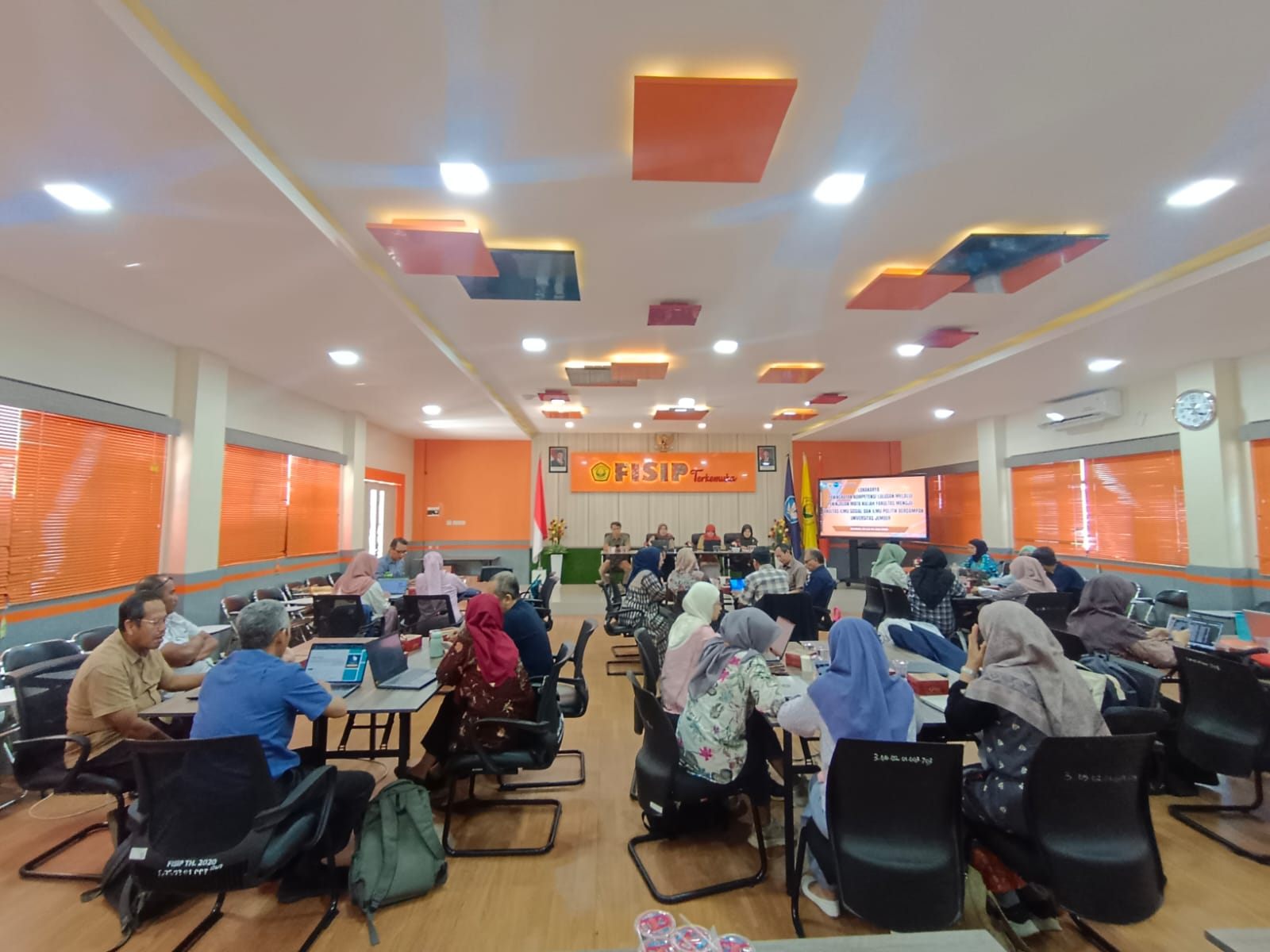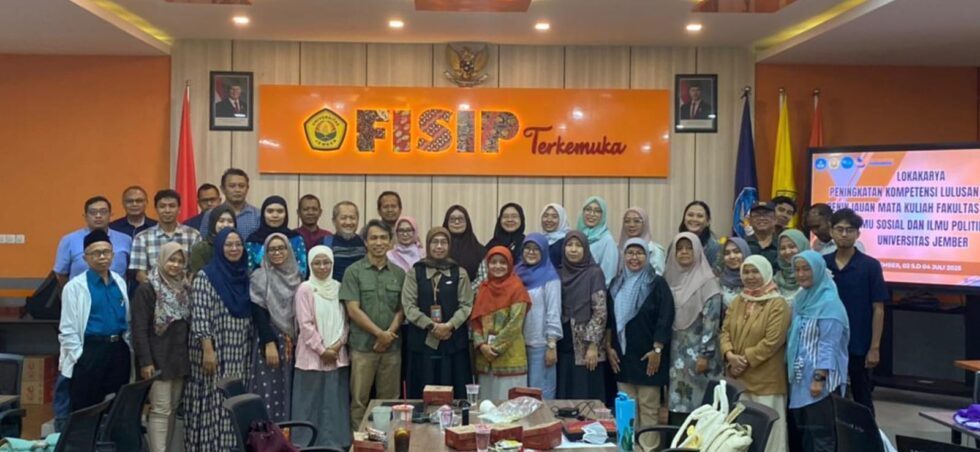The Faculty of Social and Political Sciences (FISIP) at Jember University (Unej) officially commenced a crucial workshop today, Wednesday (July 2, 2025), focusing on enhancing graduate competency through curriculum review. The event, slated to run from July 2-4, 2025, is part of FISIP’s ongoing efforts to become a more impactful and relevant faculty, producing work-ready and highly competitive graduates. The opening ceremony took place in the FISIP Unej hall.
Held in the International Room, the workshop was officially opened by the Dean of FISIP Jember University, Suyani Indriastuti, S.Sos., M.Si., Ph.D. In her remarks, Dr. Indriastuti emphasized the urgency of aligning the curriculum with the dynamic needs of the professional world and the advancements in knowledge. She added that the new curriculum is expected to be implemented in 2026. Accompanied by the Vice Dean III, the Head of the Quality Assurance Cluster (GPM), and the event’s PIC, Dr. Indriastuti highlighted that the presence of these faculty leaders demonstrated FISIP’s strong commitment to achieving the workshop’s goal: an optimal and relevant curriculum revision.
Workshop participants include program study coordinators, laboratory heads, and all lecturers within FISIP Unej. The active involvement of these academic elements is crucial, as they are directly involved in the teaching process and the development of student competencies. Intensive and collaborative discussions are expected throughout the workshop, aiming to generate valuable input for refining syllabi and learning methods.
The primary focus of this curriculum review is to ensure that every course taught genuinely contributes to achieving the desired graduate profile. This includes evaluating the relevance of materials, teaching methods, and alignment with industry and societal needs. It is hoped that the workshop’s outcomes will strengthen FISIP’s academic quality and ensure that every graduate possesses the skills and knowledge required for success across various sectors.
Currently, Jember University has several mandatory university courses totaling 10 credits: Pancasila Education, Indonesian Language, Religious Education, Civics, and Sustainable Industrial Agriculture, each worth 2 credits. Mandatory faculty courses, totaling 30 credits, include Introduction to Law, Introduction to Political Science, Introduction to Economics, Introduction to Sociology, Research Methodology, Community Service Program (Kuliah Kerja Nyata), and Thesis. Previously mandatory university courses that are now optional include English, Philosophy of Science & Academic Ethics, and Introduction to Management & Entrepreneurship.
The minimum credit requirements for graduation are 108-112 credits for Diploma 3 (D3) over 6 semesters, 144 credits for Bachelor’s (S1) over 8 semesters, 58-72 credits for Master’s (S2) over 3-4 semesters, and 84-108 credits for Doctoral (S3) degrees over 6 semesters (2 semesters theory, 4 semesters research). It is expected that each program’s curriculum review will align with the requirements of their respective accreditation bodies, whether Lamemba or Lamspak.
Through this workshop, FISIP Unej reiterates its commitment to continuous innovation and adaptation in facing global challenges. Enhancing graduate competency is a long-term investment that will benefit students, the university, and ultimately, FISIP’s contribution to national development. The workshop’s results are expected to be implemented promptly to create a significant positive impact.


